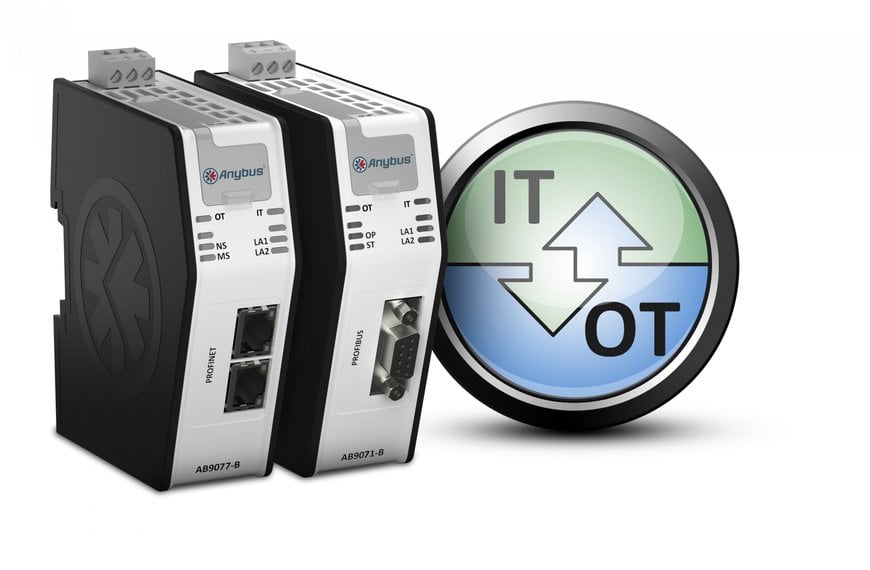www.industryemea.com
14
'19
Written on Modified on
New “edge gateways” from HMS enable communication between IT-systems and the factory floor
HMS Industrial Networks now introduces yet another gateway family for the Industrial Internet of Things. The new Anybus .NET gateways enable real-time data from industrial machinery to be presented to .NET-based IT applications. This means that .NET programmers can get data directly from a PLC system on the other side of “the edge” to be used in applications for statistics, analysis or maintenance. The first .NET gateways are available for PROFIBUS and PROFINET.

The basic prerequisite for Industrial IoT is that industrial applications are able to communicate with IT systems. However, the operational technology (OT) on the factory floor uses fieldbus and industrial Ethernet networks, which are designed for real-time communication – by default separated from the IT-infrastructure. The Anybus .NET gateways address this situation by acting as translators which send and receive data between PROFIBUS- or PROFINET-networks and IT platforms using .NET as a framework. The communication is set up in a couple of minutes and the .NET gateways are therefore a very fast way to realize IIoT.
The result is that IT systems get unprecedented access to real-time data from the factory floor which enables predictive maintenance, KPI-follow-up, machine analytics, data mining, big data processing, production statistics and much more – without interfering with the industrial processes.
The solution can be used for a wide range of use cases, from simple transfer of KPI values, advanced messages with structured data types, or ultra-fast transfer of I/O data for “big data.”
How it works
In addition to connecting the data from the industrial processes to the IT-systems, the .NET gateways make the data understandable on the IT-side. The information exchange between the Operational Technology (OT) side and the Information Technology (IT) side is defined in a spreadsheet template which defines how the data is mapped, tagged and presented to IT-applications. The spreadsheet is uploaded to the HMS code generator which automatically creates a customized high level C# API (events and Post methods) that is easy to integrate directly into a .NET application. It also generates a customized GSDML file for the PLC.
Easy for both .NET and PLC programmers
“The Anybus .NET gateways represent a very fast and easy way to realize the Industrial Internet of Things,” says Markus Bladh, Product Manager at HMS Industrial Networks. “For more than 20 years, HMS has been offering industrial communication solutions between different standards on the factory floor, and we now use this experience to offer a gateway to .NET. This is truly an ‘edge gateway’ in the sense that it creates a bridge between the IT and OT side – .NET programmers get access to data from industrial machinery, while PLC programmers can rest assured that the data access does not interfere with their critical systems.”

